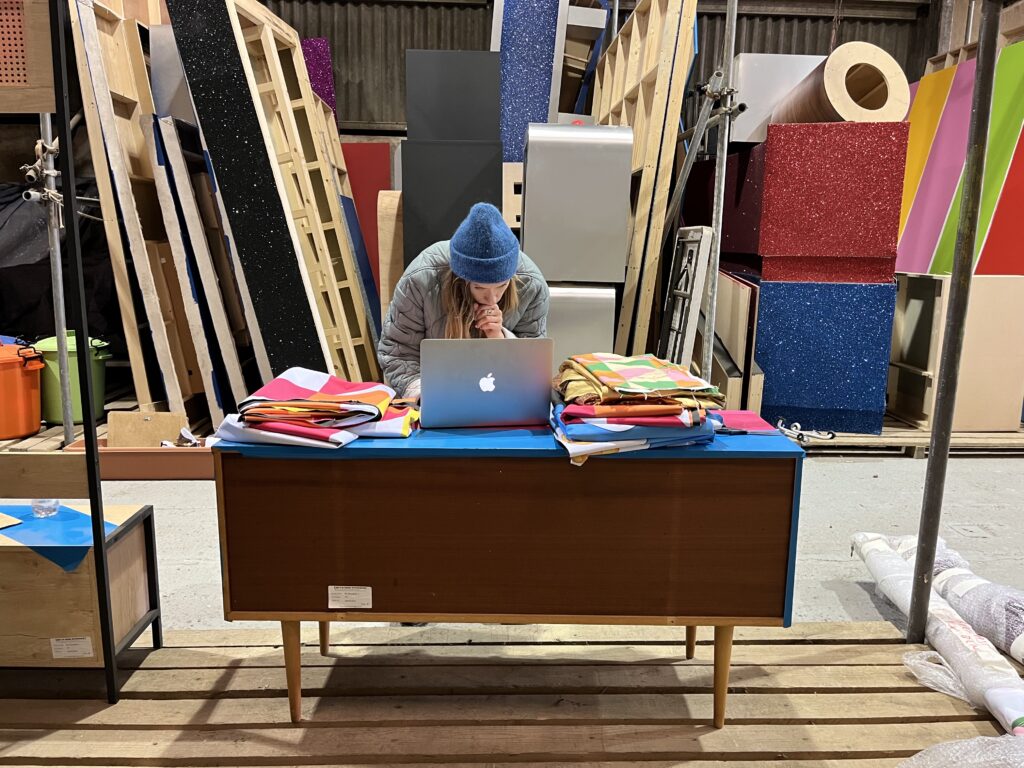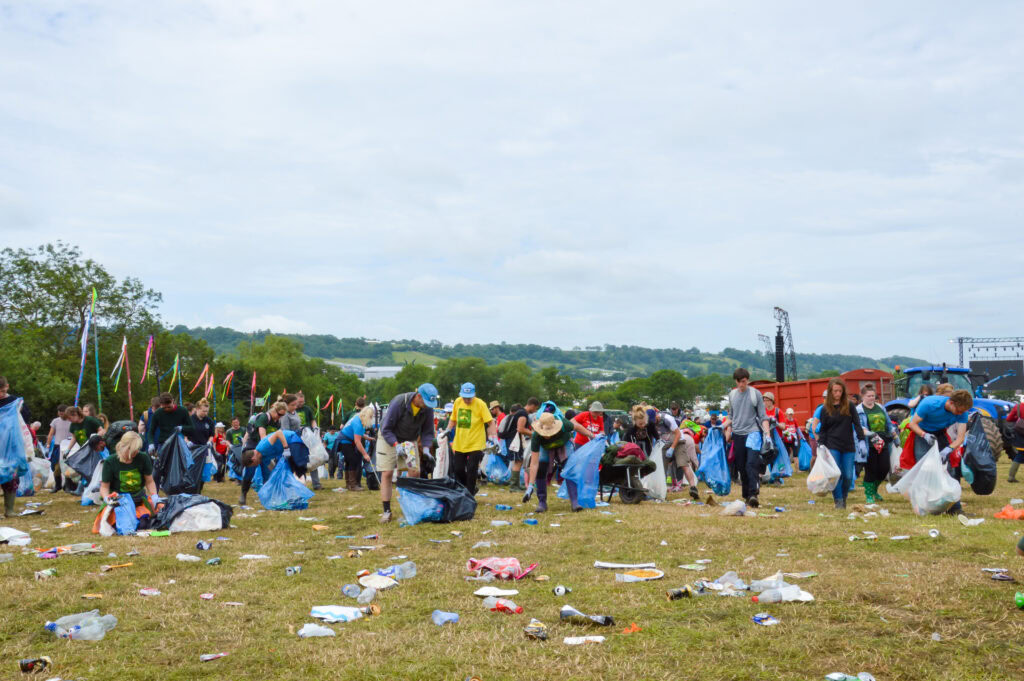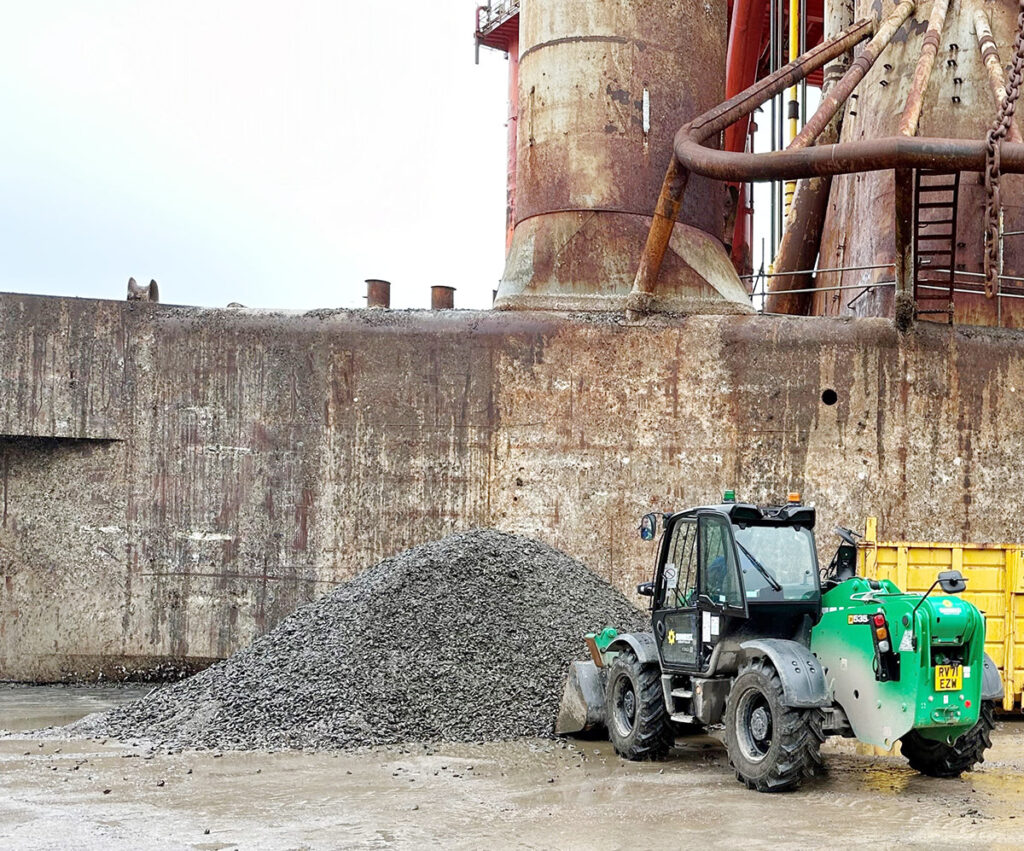As festival season approaches, The British Metals Recycling Association has called for an outright ban on all disposable vapes, with Glastonbury, Leeds and Reading leading the way last summer.
And as fires linked to batteries used in disposable vapes are happening more and more frequently, the BMRA are concerned for the safety of festivalgoers. If these events do decide against an altogether ban, suitable recycling facilities have been encouraged, both to prevent the risks of fire, and to make sure they enter the correct recycling stream.
Antonia Grey, head of policy and public affairs at the BMRA, said: “While a government ban on disposable vapes is likely, until then we all must be mindful of how we dispose of, and recycle, all vapes and, in fact, anything containing a lithium-ion battery.”
This call for a ban follows on from recent statistics showing battery fires have gone up by 71% in the UK since 2022, and that lithium-ion batteries are responsible for approximately 48% of all waste fires in this country.
Vinyl
And elsewhere in the music industry, a recent survey by Key Production, one of the UK’s largest brokers for physical music production, has suggested that consumers are largely driven by a reduced environmental impact. In fact, 77% of regular vinyl customers would be willing to pay a premium for more eco-friendly alternatives.
This same survey also made clear that a lot of general respondents (83%) don’t perceive or are unsure, that heavyweight vinyl, seen to be more valuable due to its increased heft and supposedly richer audio quality, requires extra energy to be produced, from pressing to shipping.
Karen Emanuel, CEO of Key Production Group, said that there is already an alternative to heavyweight vinyl, ready and waiting to be utilised. “Regarding 180g records – while this is often seen by the industry as a more sought-after product, this survey shows that the industry is actually getting it wrong as consumers aren’t valuing the weight as they think. High quality records can be made at 140g, and this slightly lower weight can have a hugely positive impact across the whole supply chain.”
This survey comes amidst some controversy surrounding vinyl records, with singer-songwriter Taylor Swift, for example, having produced several versions of the same album, which inevitably led to 20 April 2024 having the highest weekly sales of vinyl in 30 years, what with it also being Record Store Day.
The excessive production of vinyl records is deemed by some as wasteful. Billie Eilish, another singer-songwriter, has spoken out against the lack of sustainability where artist merchandise is concerned. Her newest album, Hit Me Hard and Soft, is reported to have been made with a “sustainability plan”, with vinyl copies pressed to either reground or bio-attributed vinyl, with all the packaging said to be made of recycled materials.
Responsibility
This recent coverage, of both vapes at festivals and excessive and unnecessary vinyl production, begs the question – could the music industry be doing more to reduce waste?
While recycling and waste management probably isn’t perceived by the average person as very rock ‘n’ roll, Key Production’s survey would suggest otherwise, with the majority willing to pay more for less damaging alternatives.
In 2019, alternative pop band The 1975 pledged to end its contributions to fast fashion, by reprinting over excess t-shirts from previous tours, rather than creating a new range, and asking fans to bring old clothing to their concerts, so that they can then be printed over.
So, if music fans are wanting more sustainable options, and the options don’t always need to cost the earth, using The 1975’s initiative as an example, why wouldn’t the music industry do more?
As it stands, it seems that in general, music fans want to feel connected and closer to the artist, and sustainability doesn’t threaten that. In fact, much the opposite, as mounting costs of the latest merchandise and the most recent edition of a vinyl record grow and grow.
And when it comes to disposable vapes, if festival giants Glastonbury, Leeds and Reading have already implemented the ban, most would argue that they’re as good of as an example as any, because although these larger festivals may have greater security measures to implement this rule, smaller and lesser-known events have a lot more to lose if they were to experience a battery fire due to a disposable vape.

Other industries
While it can be hard for creative industries to know where to start, the PropUp Project serves as a great example. PropUp Project is a non-profit organisation, set up in 2021 after TV producers (now founders) Emma and Kate saw resources, such as props, costume, stationery and furniture, going to waste, and wanted to help solve the issue.

Kate says that with a climate emergency and the cost of living crisis, it felt like “a no brainer” to divert good items away from landfill “into the hands of those that need it most”.
Although there’s a huge amount of waste in the film and TV industry, there are equally big shifts towards making a change. Kate adds: “We have BAFTA-owned albert, which is the leading screen industry organisation of sustainability. albert provides tool kits, training, events and practical guidance to help productions reduce their environmental impact.
“Also, more and more productions are enlisting sustainability coordinators. There are film and TV sustainability consultancy companies (Picture Zero, Sustainable Film, Green Eyes Production etc.), artists are also signing up to Equity’s Green Rider, and there’s other brilliant organisations like ReSet Scenery and, of course, PropUp Project!”
And how is PropUp Project going? Kate adds: “In just two years, we’ve processed over 18,000 items, connecting to more than 160 different charities and community groups nationwide to ensure that our industry waste is put to good use.
“We’ve also been campaigning and educating, working with BFI Academy and production company CTVC to help inspire the next generation of filmmakers to be more sustainable in their production choices. We believe it’s key that everyone thinks about what happens at the end of production, as much as before and during.”
Kate concludes: “It is so important that we all take responsibility for the waste we produce. We should be working towards a place where reuse is more the norm than buying new.”













Subscribe for free